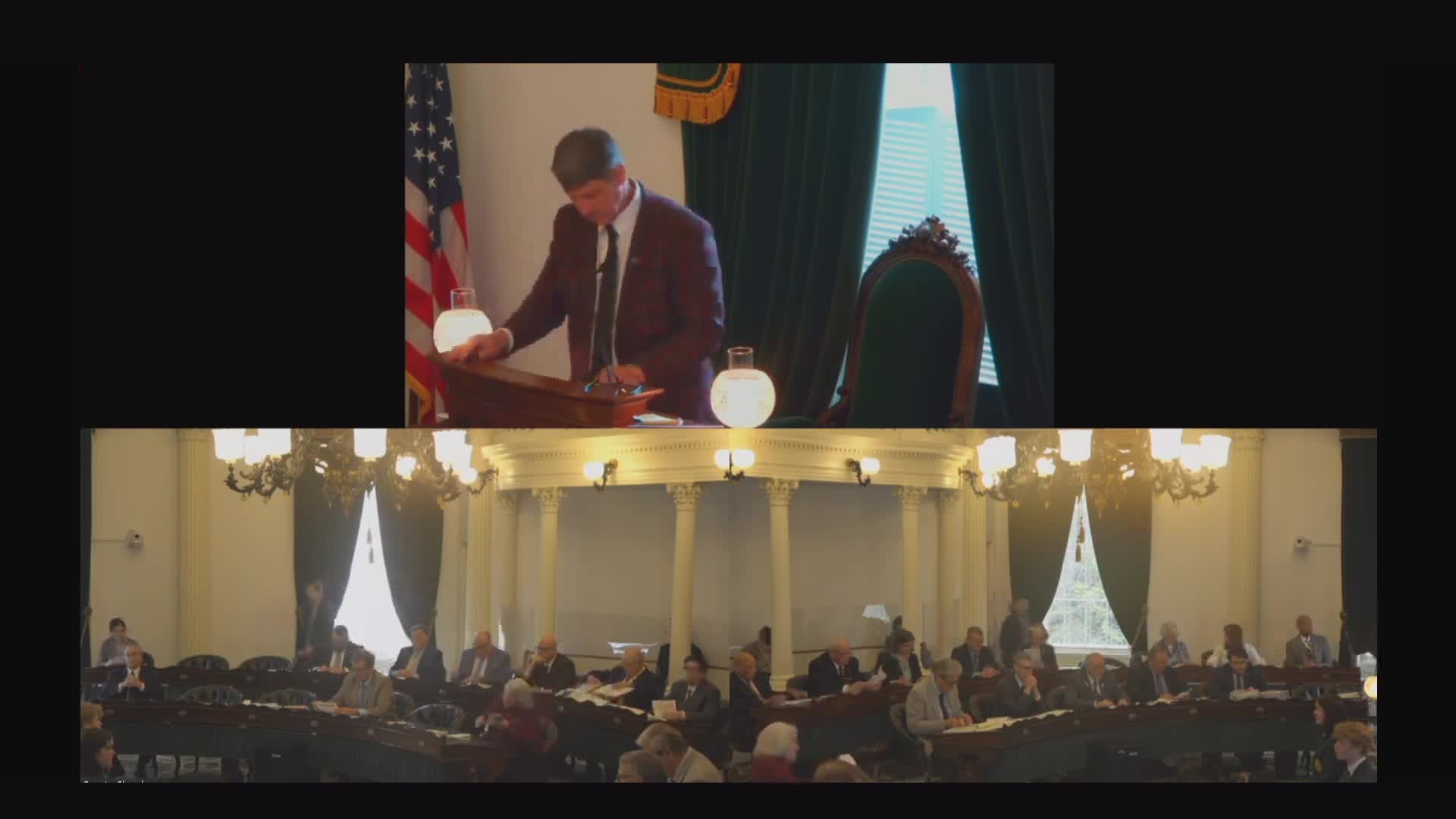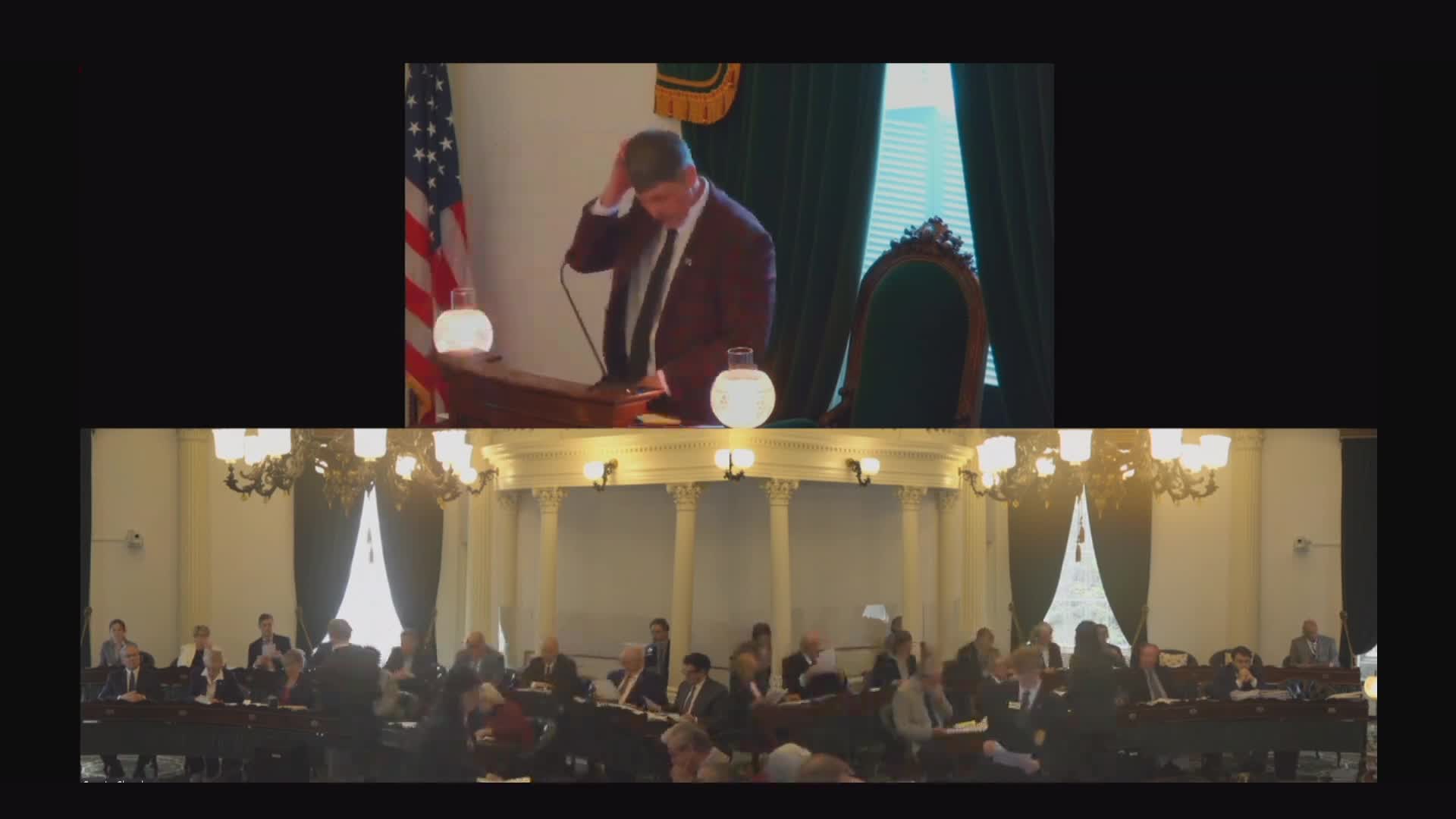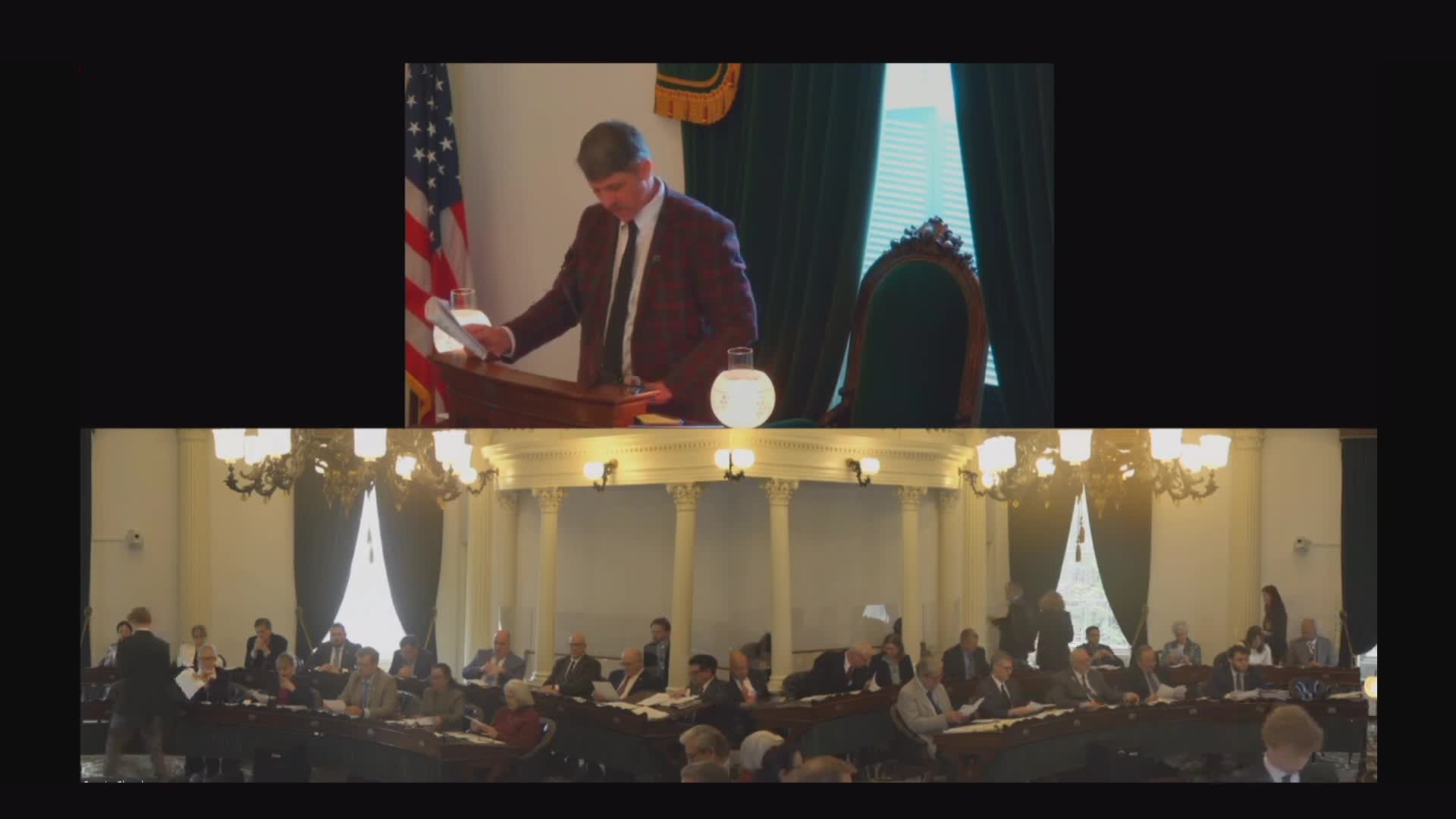Article not found
This article is no longer available. But don't worry—we've gathered other articles that discuss the same topic.

Votes at a glance: several bills advanced or ordered to third reading

Senate backs Molly Beattie distinguished service award honoring Vermont conservation leader

Senate advances bill expanding reasons and covered family members under Vermont's unpaid leave law

